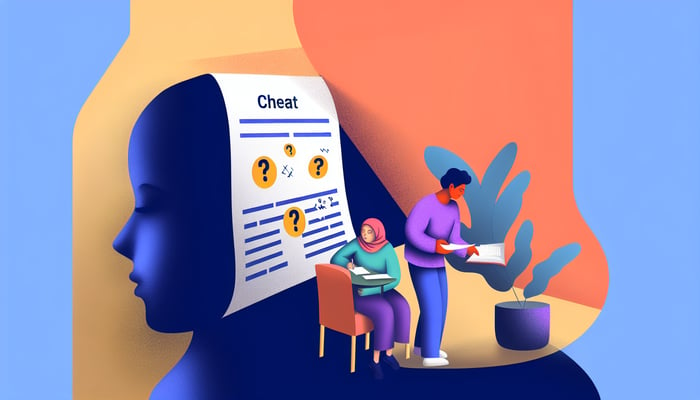
Why People Cheat on Quizzes—and What It Reveals
Explore the complex reasons behind why people cheat on quizzes and what their motivations reveal about human behavior and societal pressures.

Explore the complex reasons behind why people cheat on quizzes and what their motivations reveal about human behavior and societal pressures.
Cheating on quizzes is a phenomenon that transcends age, education level, and even the importance of the test itself. While many consider it a simple act of dishonesty, there’s often more beneath the surface. In this blog post, we’ll explore the reasons why people cheat on quizzes and what their motivations reveal about human behavior.
Cheating is not just about the desire to achieve better grades; it often stems from deeper psychological and social factors. Here are some common motivations:
The act of cheating on quizzes can reveal much about societal norms and the educational system. Here are some insights:
When students prioritize grades over genuine understanding, it can lead to a culture of cheating. This highlights a need for educational reforms that emphasize learning and critical thinking rather than rote memorization.
The pressure to succeed can lead to stress and anxiety, which may drive some students to cheat. Understanding this connection could help educators create more supportive environments.
Many students lack a clear understanding of academic integrity. Incorporating ethics into the curriculum can help students grasp the importance of honesty in their academic pursuits.
Cheating on quizzes is a multifaceted issue that reflects broader societal trends and personal struggles. By understanding the reasons behind this behavior, educators, parents, and students can work together to create a more honest and supportive learning environment. Addressing the root causes of cheating can pave the way for a future where students value education for its own sake, rather than merely as a means to an end.

Discover the surprising benefits of playing online quizzes! From enhancing memory retention to reducing stress, learn how these engaging activities can improve your cognitive skills and promote social

Discover the numerous benefits of online learning, from flexibility to diverse resources. Learn how educational quizzes enhance retention and engagement, making learning more effective and enjoyable.

Quiz battles are rapidly gaining popularity as competitive quizzing becomes a thrilling sport. This blog explores the reasons behind this trend, the benefits of participation, and how you can get in.